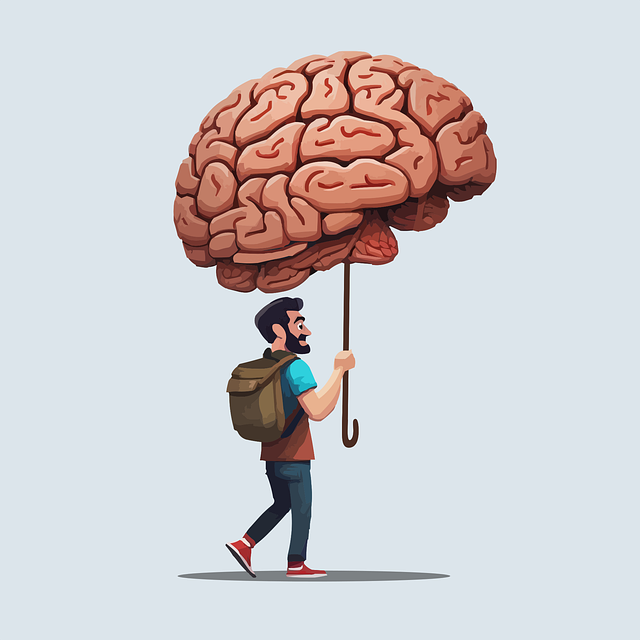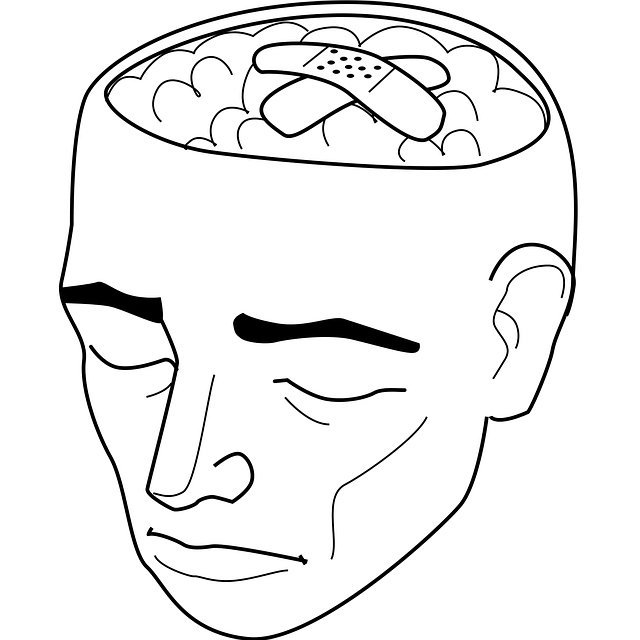Anxiety, a natural stress response, can disrupt daily life when persistent. Littleton Biofeedback Therapy helps individuals identify and understand anxiety triggers, teaching them to control physiological reactions using real-time feedback from specialized equipment. This approach, backed by research, empowers people to develop personalized coping strategies and reduce anxiety symptoms. Stress Management Workshops offer techniques like mindfulness, breathing exercises, and empathy-building for emotional regulation, while Mental Wellness Journaling Exercise Guidance enhances access to these practices. Combining these methods can significantly help manage anxiety and improve overall well-being.
Anxiety is a prevalent condition affecting millions, yet managing it effectively remains a challenge. This article guides you through a comprehensive approach to anxiety management, focusing on understanding its root causes and impact. We delve into innovative techniques like Littleton Biofeedback Therapy, offering a non-invasive method for stress reduction. Furthermore, discover practical strategies tailored for daily life, empowering you to take control and lead a calmer, more balanced existence.
- Understanding Anxiety and Its Impact
- Exploring Littleton Biofeedback Therapy
- Practical Strategies for Daily Anxiety Management
Understanding Anxiety and Its Impact

Anxiety is a natural response to stress, but when it becomes overwhelming and persistent, it can significantly impact daily life. In Littleton Biofeedback Therapy sessions, individuals learn to recognize and understand their anxiety triggers, which is a crucial step towards managing it effectively. By identifying specific physical sensations and thoughts associated with anxiety, clients gain valuable insights into how their minds and bodies react in stressful situations. This awareness allows them to develop personalized strategies for coping.
Anxiety can manifest in various ways, affecting both mental and physical well-being. It may cause excessive worry, rapid heartbeat, insomnia, or even physical symptoms like dizziness. The impact of prolonged anxiety can be severe, leading to avoidance behaviors and negatively influencing personal relationships and professional performance. That’s where organizations like Stress Management Workshops play a vital role in empowering individuals with tools for emotional regulation. Through techniques such as mindfulness, breathing exercises, and empathy-building strategies, these workshops help participants gain better control over their anxious responses, fostering a sense of calm and resilience.
Exploring Littleton Biofeedback Therapy

Littleton Biofeedback Therapy offers a unique and effective approach to managing anxiety, combining the power of the mind with the precise measurement of bodily responses. This therapeutic technique involves teaching individuals how to consciously control their physiological reactions, such as heart rate and muscle tension, which are often heightened during moments of anxiety. By using specialized equipment to provide real-time feedback, clients learn to recognize these physical cues and make necessary adjustments to promote relaxation and reduce anxiety symptoms.
The method is deeply rooted in the principle that our bodies hold the key to understanding our emotional states. Cultural Sensitivity in Mental Healthcare Practice plays a pivotal role here, as therapists tailor their approach to respect and accommodate diverse cultural backgrounds, ensuring inclusivity and effectiveness. Moreover, encouraging Mental Wellness Journaling Exercise Guidance can complement biofeedback sessions, allowing clients to track their progress, identify triggers, and gain deeper insights into their anxiety patterns. Stress Management Workshops Organization within the community further enhances access to this powerful tool, empowering individuals to take charge of their mental wellness.
Practical Strategies for Daily Anxiety Management

Anxiety management is a practical, everyday skill that can be cultivated through various strategies. One effective approach, backed by scientific research, is Littleton Biofeedback Therapy. This non-invasive technique teaches individuals to gain control over their physiological responses to stress, ultimately reducing anxiety symptoms. By using biofeedback sensors and real-time feedback, clients learn to relax muscles, regulate heart rate, and calm the mind, becoming more resilient in high-pressure situations.
Incorporating stress reduction methods into daily routines is another powerful tool for managing anxiety. Techniques such as mindfulness meditation, deep breathing exercises, and progressive muscle relaxation can be easily practiced at home. Additionally, joining a Stress Management Workshop Organization provides structured learning environments where individuals can explore confidence-boosting strategies and share experiences with peers. These workshops often offer tailored guidance on time management, goal setting, and stress-coping mechanisms to enhance overall well-being.
In light of the above discussions on anxiety management techniques, it’s clear that understanding and addressing anxiety is a multifaceted process. While exploring strategies like Littleton Biofeedback Therapy and adopting practical daily habits can significantly mitigate symptoms, it’s essential to remember that managing anxiety is an ongoing journey. By combining therapeutic approaches with personal coping mechanisms, individuals can lead more balanced lives, reducing the impact of anxiety on their overall well-being.














